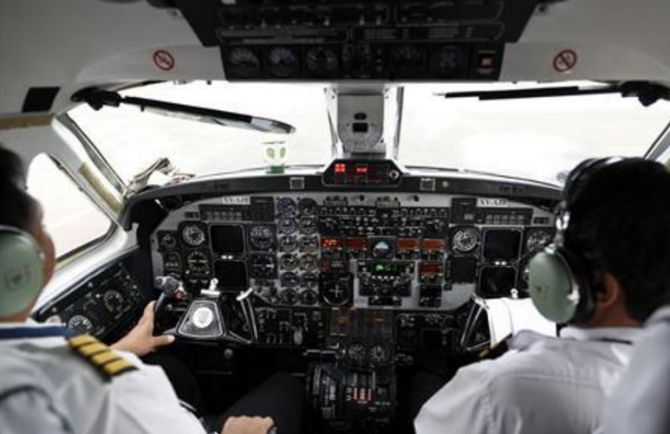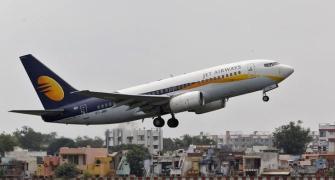Etihad, Emirates and Qatar Airways have combined hired more than 100 Indian pilots in the last six months.

Plagued by a shortage of commanders, airlines in India are trying to lure back pilots who were poached by Middle Eastern carriers.
SpiceJet and Vistara have held roadshows in the major Gulf cities like Abu Dhabi and Dubai for recruitment of captains and first officers.
“Indians sometime find the working conditions in the Gulf tough and monotonous, the system is very process-driven there.
"You may earn the cash but you may not get the desired respect. That is the lot the Indian airlines are trying to lure back,” says a former IndiGo pilot who is now employed with the Dubai-based Emirates.
India has been a favourite hunting ground for cash-rich Middle Eastern carriers. Etihad, Emirates and Qatar Airways have combined hired more than 100 Indian pilots in the last six months.
The shortage is so alarming that the airline lobby group the Federation of Indian Airlines (FIA) persuaded the Directorate General of Civil Aviation to increase the notice period for commanders from six months to one year.
“I do not think we are offering the same pay, perks that the Gulf carriers provide. We are trying to attract pilots who are eager to come back home,” said a SpiceJet executive.
The shortage of commanders is also caused by the additional training and flying hours required for a first officer to be promoted as a commander.
Holders of commercial pilot licences with a rating on a particular aircraft need to undergo three to six months of training before being selected as first officer.
The licence examination for the post of commander requires a minimum 1,500 hours of flying.
A first officer can be upgraded to a commander’s post at any time between three and six years depending upon the airline’s training requirements and will have flown at least 2,500 hours before taking up the post.
According to aviation consultancy firm CAPA, Indian airlines have an order book of 923 aircraft.
SpiceJet, which is planning to hire commanders for its existing Boeing 737NG and 737max, fleet has more than 200 aircraft on order that will be delivered from June next year.
Vistara is likely to place an order for 100 aircraft as it becomes ready to fly abroad from the middle of 2018.
However, pilots say it will not be easy for airlines to woo back aviators from the Gulf.
The DGCA notice period of one year discourages many pilots from returning to India.
Additionally, there is wider career scope in the Gulf for pilots.
“Working in the Gulf allows flying wide-bodied aircraft, which always is very attractive. Job stability is another major driver. Except IndiGo and Vistara, growth of the other carriers remains limited,” said an Indian commander who works for Qatar Airways.
Photograph: Soe Zeya Tun/Reuters










